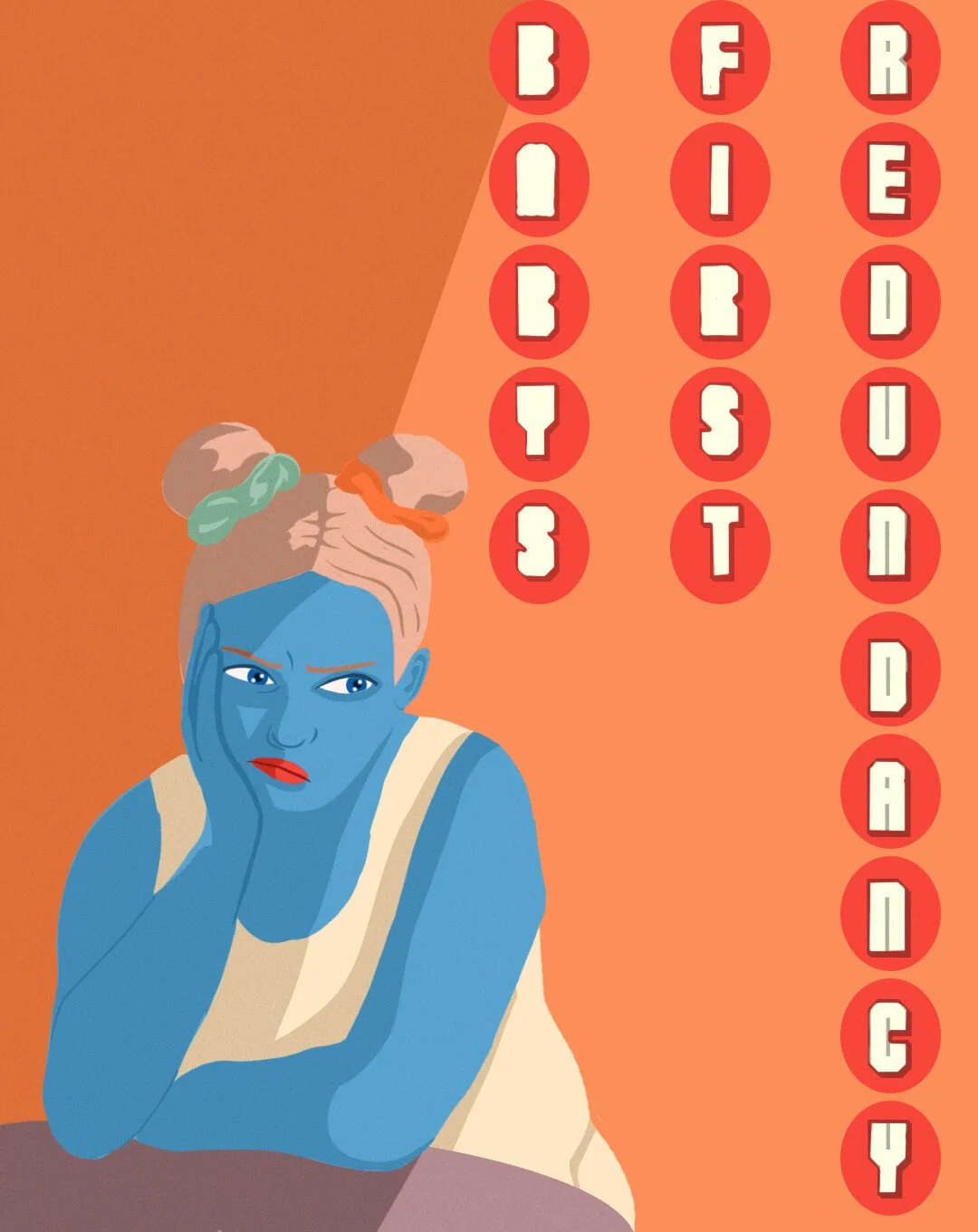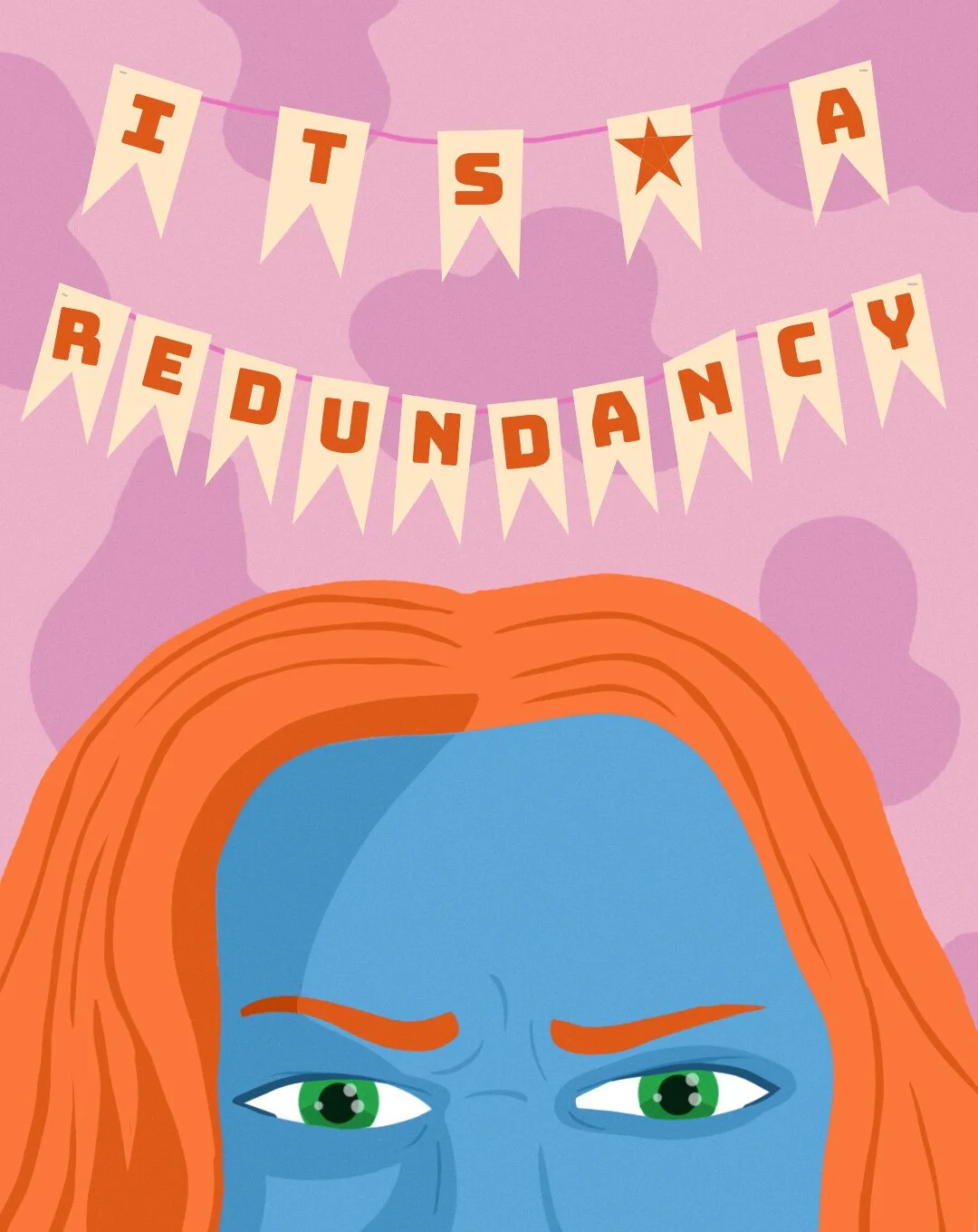Baby’s First Redundancy
Make it stand out
Young people’s careers — and I don’t think that this is too strong a statement — have been completely and utterly fucked over by the pandemic. Nearly 700,000 Brits lost their jobs as soon as Covid made its happy way into our shires, and those who didn’t were stuck inside furloughed, clawing at the walls, or working from home, spending day in and day out sat on the same spot of their sofa. While the older generations with their 4 bed houses that they bought for £12.50 in 1987 have been able to leisurely move between rooms (!) and perhaps escape to a garden (!!), the majority of young people in the UK have no such luxury; living in small one-bedroom flats with their prized monstera plant being the closest thing they have to a green space.
For most of the pandemic, I was one such worker-from-home. However, everything changed when one rogue Monday last month, me and the rest of my close-knit team got the fateful meeting invite. The dread started to creep in when we were told that HR were going to be present. The words “lay-offs” started to bounce around in our group chat, accompanied by nervous jokes about us all being fired. Surely they won’t do it, I thought. Surely, after working hard for the last year, they won’t be turfing us out into the cold realities of the job market. As it turned out, I was wrong.
We couldn't quite believe it until they came out with it in plain terms: my whole team, plus around 30 others, were going to be made redundant due to restructuring of the company.
I was shocked, but not surprised. My company hadn't treated us with much respect or appreciation the whole time I had worked there, fighting tooth and nail against even inflation-tracking pay rises. It was my first job after graduating university, and after a stickier end to it than I would have hoped, being made redundant aged 22 has completely jaded me about working life from the get-go.
___STEADY_PAYWALL___
I’m not the only one who has become disillusioned about the job market in recent times: over two-thirds of people who lost their jobs during the pandemic were under 25. I spoke to Cara, a 24-year-old who also recently found out she was being made redundant from her job in the publishing industry. “It’s so disappointing, especially with the way that my company is handling the process. They won’t even consider giving us the option of voluntary redundancy, which means that I won’t get any redundancy pay since I’ve had to quit. I couldn’t risk not taking the first new job that came my way in case I couldn’t find another one for ages.”
Outside of the reams of lay-offs experienced by people of all ages around the country, young people looking for entry-level jobs are especially struggling; many sectors that usually take on lots of school and university leavers like hospitality, leisure and retail have been nearly completely shut down during the multiple lockdowns we’ve faced in the last 18 months. In fact, 16-24 year olds are still facing much higher unemployment rates than the rest of the general population, at a rate of 13.3% compared to the average 4.8%.
Young people like myself who have lost their jobs are now thrown into the already overflowing pool of university graduates clamouring for the simple joys of being employed. In my many hours trawling through LinkedIn for job opportunities, I see so many job ads that have over 200 applicants recorded, with more likely applying via other job websites. How are we all supposed to find a job when the market is so saturated?
Joe is about to leave university, and has also been struggling to find a first job in media. “I feel like I’m never going to find something that will pay me enough to live in London and won’t bore me to tears,” he says. “Every job that I apply to either gets rejected or just plain ignored, which is way worse since you’re left waiting in agony to hear back from an HR rep who doesn’t even have the courtesy to send out a batch rejection email.”
There are a variety of other factors that get in the way of people finding jobs. Gender and race are some of the most widely known characteristics that skew employment rates, with women getting paid 8.9% less than men on average, and white people finding it much easier to find jobs than every other ethnic group in the UK. Disabled people also have a much higher unemployment rate than abled people, at 6.7% for disabled people compared to 3.7% for non-disabled people as of 2019. While gender, race and disability are all protected characteristics in the UK, meaning that it’s illegal to not hire someone because of their status in those categories, there is no law against discriminating against people based on their weight. One 2016 study found that when participants were shown hypothetical CVs with photographs depicting fat and thin people, they viewed men and women of average weight to be the most suitable for employment, with obese women being the least likely to be hired.
The job market is a total dumpster fire for everyone at the moment, but hopefully as Covid fades into the annals of our Twitter histories, the situation will improve as more industries get back to full capacity. However, there are still huge barriers to under 25s in getting onto a career ladder, such as jobs that ask for 5 years’ experience but call themselves “entry-level”, and only offer salaries of £20,000 a year, which often is barely enough to cover rent in larger cities like London. No matter how much we limit our avocado toast consumption, it’s so much harder for our generation to achieve the same archetypal milestones of success that the older generations easily reached. The halcyon days of homeownership with a dog and a job I love feels so far out of reach. Hopefully it will feel closer to reality in time, and in the meantime, I hope I and everyone else looking can find a new job that will pay the bills.
Words: Jess Thomson | Illustrations: Chloe Sargént


